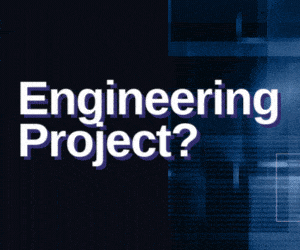It now seems that the future of medicine in India looks good with respect to speedy processes and cutting down healthcare costs. This is because Artificial Intelligence (AI) will not only integrate better with healthcare systems but will also complete all repetitive work that is currently done by humans. This is expected to save both time and money.
The above innovation is set to get a shot in the arm soon and would potentially change the way you look at medicine and healthcare. This is what Ashissh Raichura, Founder at Teesha Technologies (an IoT Enabled Healthcare Startup) thinks, and is also optimistic about Machine Learning helping medicine despite resistance from the fraternity. Ashissh recently sat down with Rahul R, Electronics For You for an exclusive interaction.
Q. What is the current scenario, of AI and Machine Learning in Medicine, in India?

A.Lot of startups are currently mushrooming which is a good sign as far as Machine Learning is concerned. Upon integration in medicine, the AI mostly takes care of ‘repetitive work’ like analysis of X-Rays. This in turn leads to saving the Radiologists’ time and thereby lead to them devoting more time towards patients.
Q. Could you throw some light on the usage of AI and Machine Learning towards better and early detection of diseases, including the fatal ones?
A. Machine Learning can be programmed to work efficiently with precision medicine which is built on the unique genetic characteristics of a patient. It is natural that people have different genomes, AI would integrate with this and display vital statistics (and errors, if any) relatively early. AI will help patients in preventing them from turning chronic. Also, I am working towards developing a machine to detect lung cancer early.
Q. When do you think that Machine Learning and AI in medicine would be practically implemented in a country like India?
A.Within 5 years’ time, Machine Learning should be helping healthcare/medicine in India in a many ways, many startup are really doing good work right now also.
Q. Will rapid evolution of Medical Electronics lead to a positive trend such as reduction in mortality rates (especially amongst pregnant women during deliveries), via early detection/diagnosis using Machine Learning and AI?
A.This is the vision. With Artificial Intelligence, we strive to program the systems in such a way that the lifespan of people is increased. Even life expectancy ratio would increase manifold. Another important aspect is foetal monitoring in pregnant women. This is now evolving big-time across the world.
In India, a disturbing statistic indicates a whopping 3 lakh deaths during delivery (reasons for deaths not known). This is out of an approximate 30 lakhs deliveries per year. So what Machine Learning would do is, the unknown deaths would be prevented through accurate analysis. In fact we are developing a foetal monitoring device where we are able to check the misleading data by the foetus. This includes the water level within the womb. Once this critical parameter is taken care of, accurate diagnosis can be carried out thereby preventing deaths.
Q. Summarising our conversation, how do you generally view IoT and Robotics in Healthcare in India, when it comes to assisting in surgeries and remote consultations?
A.Robotics in remote consultation should be a no-no; Doctors learn and connect with their patients through emotions. So having a robot as a consultant (at least for minor diagnosis), would not have the emotional connect with patients.
However, surgeries would involve intensive robotics, but at a primary assistance level.
Q.This brings to mind the fact that can a conventional smart home double up as a smart hospital with IoT, Robotics, Machine Learning, and AI combined?
A.Yes, looking at the overall sector, a dearth in medical professionals is strikingly visible. So IoT will come into picture here. What this does to patients is, put the early diagnosis of diseases in their own hands thereby leading to much more awareness and empowerment amongst patients. An example here would be a smart home camera that scans facial expressions for likely symptoms and passes on this data both to users as well as doctors, in the case of likely diseases.
In India, the above smart diagnosis at the home level would happen very soon. The smart solutions are also expected to be cheaper. Once AI starts evolving, we will also move towards value-oriented healthcare, from a pricy healthcare system.
Q. Can you suggest any smart healthcare solution that is readily implementable?
A.Yes, we have a patented device that measures 3X3 inches; and monitors vitals. This is a chargeable device. It records data on the mobile app without human intervention. Data here includes blood glucose, oxygen level, ECG. Here, monitoring and recording ECG includes the early symptoms and not the full blown ECG.
Q. Finally, do you think the Government of India is doing enough to popularise and promote AI in Healthcare?
A.Honestly, No. I feel the Indian Government should intervene and create policies within the general medical regulation guidelines. Startups working in the AI sector should be made self-sufficient. Practical knowledge of IoT should also be popularised within academic syllabus at the graduate level.
In fact, I am open to interacting with anybody who is working towards making healthcare affordable and accessible which the vision I am carrying with me. Questions/queries from the general public are also invited. I am more than happy to interact.
Q. AI in healthcare: You can soon detect and diagnose diseases on your own
A.It now seems that the future of medicine in India looks good with respect to speedy processes and cutting down healthcare costs. This is because Artificial Intelligence (AI) will not only integrate better with healthcare systems but will also complete all repetitive work that is currently done by humans. This is expected to save both time and money.
The above innovation is set to get a shot in the arm soon and would potentially change the way you look at medicine and healthcare. This is what Ashissh Raichura, Founder at Teesha Technologies (an IoT Enabled Healthcare Startup) thinks, and is also optimistic about Machine Learning helping medicine despite resistance from the fraternity. Ashissh recently sat down with us for an exclusive interaction. Below are the excerpts from the interview:
Q. What is the current scenario, of AI and Machine Learning in Medicine, in India?
A.Lot of startups are currently mushrooming which is a good sign as far as Machine Learning is concerned. Upon integration in medicine, the AI mostly takes care of ‘repetitive work’ like analysis of X-Rays. This in turn leads to saving the Radiologists’ time and thereby lead to them devoting more time towards patients.
Q. Could you throw some light on the usage of AI and Machine Learning towards better and early detection of diseases, including the fatal ones?
A.Machine Learning can be programmed to work efficiently with precision medicine which is built on the unique genetic characteristics of a patient. It is natural that people have different genomes, AI would integrate with this and display vital statistics (and errors, if any) relatively early. AI will help patients in preventing them from turning chronic. Also, I am working towards developing a machine to detect lung cancer early.
Q. When do you think that Machine Learning and AI in medicine would be practically implemented in a country like India?
A.Within 5 years’ time, Machine Learning should be helping healthcare/medicine in India in a many ways, many startup are really doing good work right now also.
Q. Will rapid evolution of Medical Electronics lead to a positive trend such as reduction in mortality rates (especially amongst pregnant women during deliveries), via early detection/diagnosis using Machine Learning and AI?
A.This is the vision. With Artificial Intelligence, we strive to program the systems in such a way that the lifespan of people is increased. Even life expectancy ratio would increase manifold. Another important aspect is foetal monitoring in pregnant women. This is now evolving big-time across the world.
In India, a disturbing statistic indicates a whopping 3 lakh deaths during delivery (reasons for deaths not known). This is out of an approximate 30 lakhs deliveries per year. So what Machine Learning would do is, the unknown deaths would be prevented through accurate analysis. In fact we are developing a foetal monitoring device where we are able to check the misleading data by the foetus. This includes the water level within the womb. Once this critical parameter is taken care of, accurate diagnosis can be carried out thereby preventing deaths.
Q. Summarising our conversation, how do you generally view IoT and Robotics in Healthcare in India, when it comes to assisting in surgeries and remote consultations?
A.Robotics in remote consultation should be a no-no; Doctors learn and connect with their patients through emotions. So having a robot as a consultant (at least for minor diagnosis), would not have the emotional connect with patients.
However, surgeries would involve intensive robotics, but at a primary assistance level.
Q. This brings to mind the fact that can a conventional smart home double up as a smart hospital with IoT, Robotics, Machine Learning, and AI combined?
A.Yes, looking at the overall sector, a dearth in medical professionals is strikingly visible. So IoT will come into picture here. What this does to patients is, put the early diagnosis of diseases in their own hands thereby leading to much more awareness and empowerment amongst patients. An example here would be a smart home camera that scans facial expressions for likely symptoms and passes on this data both to users as well as doctors, in the case of likely diseases.
In India, the above smart diagnosis at the home level would happen very soon. The smart solutions are also expected to be cheaper. Once AI starts evolving, we will also move towards value-oriented healthcare, from a pricy healthcare system.
Q. Can you suggest any smart healthcare solution that is readily implementable?
A.Yes, we have a patented device that measures 3X3 inches; and monitors vitals. This is a chargeable device. It records data on the mobile app without human intervention. Data here includes blood glucose, oxygen level, ECG. Here, monitoring and recording ECG includes the early symptoms and not the full blown ECG.
Q. Finally, do you think the Government of India is doing enough to popularise and promote AI in Healthcare?
A.Honestly, No. I feel the Indian Government should intervene and create policies within the general medical regulation guidelines. Startups working in the AI sector should be made self-sufficient. Practical knowledge of IoT should also be popularised within academic syllabus at the graduate level.
In fact, I am open to interacting with anybody who is working towards making healthcare affordable and accessible which the vision I am carrying with me. Questions/queries from the general public are also invited. I am more than happy to interact.








Can you display on this page how to trouble shoot simple Radio with AM/FM . I want to start repairing this AM/FM radio because it has good sound production.